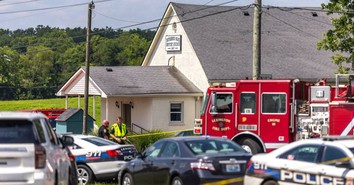No Marriage Left Behind: Staying Connected to Your Congregation

I've never been a pastor, but can only imagine the job being next to impossible. So many people -- so many needs. It's not enough to simply preach and lead the congregation. You must also wear the hat of counselor, friend, cheerleader and CEO. In addition to teaching, you assist at celebrations as well as emotional and medical emergencies. Part pastor, part counselor, you're pulled in hundreds of different directions.
One of the pastor's most important roles is making sure there is no marriage left behind. You want to ensure that every couple is connected, not only to God, but to you as well as caring and concerned people within your congregation.
This task is often too much to ask of any one person or even staff of people. Couples get lost in the shuffle. Statistics tell us that many couples experience a marriage crisis, separate and sometimes even divorce without anyone knowing. They quietly drop out of their caring congregation often never to be seen again.
With the demands of marriage and the challenges of staying connected, couples slip through the cracks—and this is something we want to change. No one wants to see members of our congregation lose their marriage. We cringe upon hearing about a couple who dropped out of church and later divorced. No one wants to know our friends are experiencing marital struggles, yet we often ignore the signs of distress.
How can we stay connected? Last month we discussed how couples can stay connected to their churches. Now let's consider this from the other end: what can your pastoral staff do to ensure there is no marriage left behind? What can your church staff do to ensure every couple is connected to others? What can pastoral staff do to ensure they are connected to every couple, so no couple falls through the cracks?
We want a place where people are so connected to each other that when one cries, we all feel the pain -- when one celebrates, we all share in their joy. That, after all, is one of the most powerful aspects of the church.
Here are a few ideas for your pastoral staff:
First, determine to make the marriages in your congregation a priority. Such a goal will require incredible focus and intentionality. With all of your responsibilities, this huge goal cannot happen without determination. Even with determination and focus, staying connected to every couple, every marriage, will be challenging at best — but it can be done! Here is where small groups, co-pastors, elders and lay leaders can be extraordinarily helpful.
Second, assume there are great marital needs that you will never hear about. Because having a marriage crisis is still a stigma in many churches, don't be surprised that couples still feel ashamed to ask for help. Because of this fact, you must assume there are significant needs within your church swirling beneath the surface of the Sunday smiling faces. You must adopt an attitude that there are problems, and your task is to discover them.
Third, begin to develop and impliment a plan for creating a safety net where no couple will ever be left behind. This goal — where every couple is connected to their pastor, group leader or at least one other person or couple --- can be accomplished with wisdom and good planning. Cultivate a corporate attitude of openness and transparency. This begins, of course, from the pulpit. While using discretion, share about the commonality of addictions as well as emotional and marriage problems.
Fourth, through the use of small groups or networking, every couple must have someone they turn to in times of trouble. Be clear about this goal for your congregation. Foster purposeful support for healthy marriages by encouraging small groups to open up to one another, not just stick to more distant topics. Teach your congregation the signs of a healthy and vital marriage as well as signs of trouble. By your example of being present, discussing marital challenges openly, and being tuned in to the functioning of the larger whole, you teach everyone about taking time to learn about others.
Fifth, a sense of unity and accountability must be endorsed and encouraged within your church. Your pastoral staff must emphasize the importance of belonging to the Body of Christ. Cultivate a sense that we are not only connected in some way to others but are responsible for others' well-beings.
Finally, offer help for those in relational trouble. Every member of your body must know exactly where they can turn when in trouble. That help must be easily accessible, expert and helpful. Every individual/ couple must know they have a safety net that will catch them in times of trouble. That help can take the form of a prayer team that encircles them with love, supportive friends, connections with expert counseling to assist them, and spiritual advisors who will uphold them with Biblical principles.
As I said last month, I dream of a world where no marriage can slip away, becoming another tragic statistic. I envision a world where every couple feels connected, cared about and within a phone call of immediate and appropriate help. Perhaps that help simply takes the form of encouragement; perhaps it takes the form of a group of prayer warriors gathering for support or simply a team of trained persons ready to come alongside us. Together we can create connection.
I invite you to interact with me about the concept of No Marriage Left Behind. Please feel free to email me at TheRelationshipDoctor@Gmail.com or see information about my ministry and The Marriage Recovery Center on my website, www.MarriageRecoveryCenter.com.
November 24, 2010

Originally published November 27, 2010.








